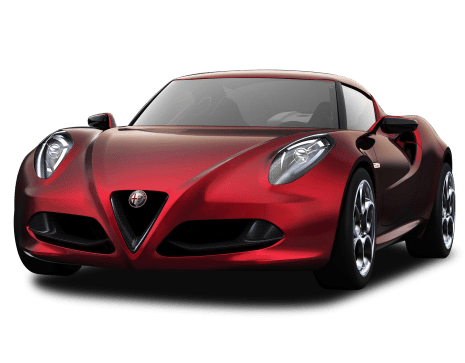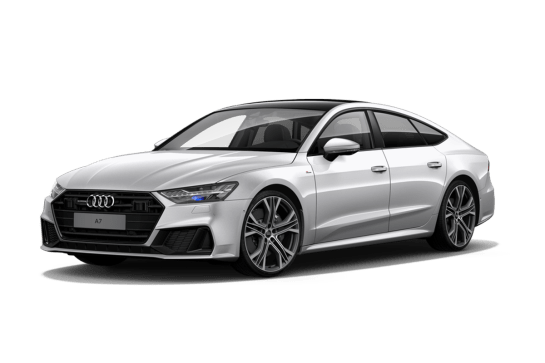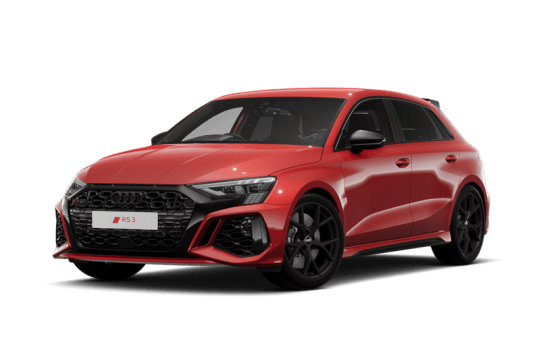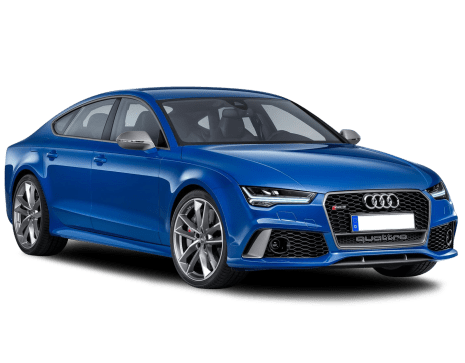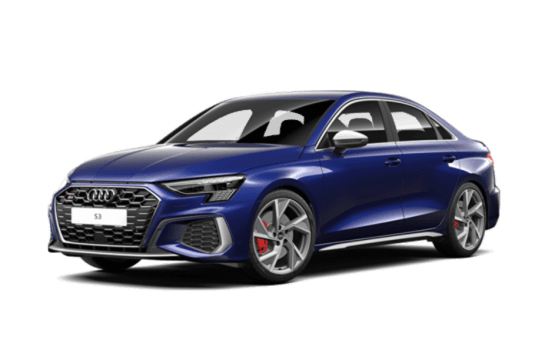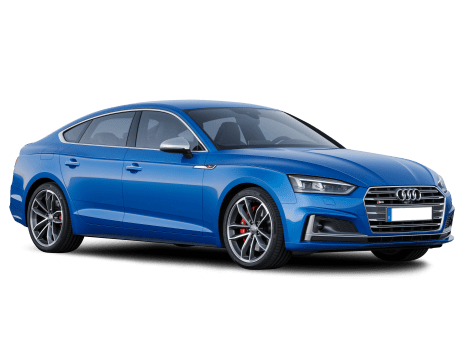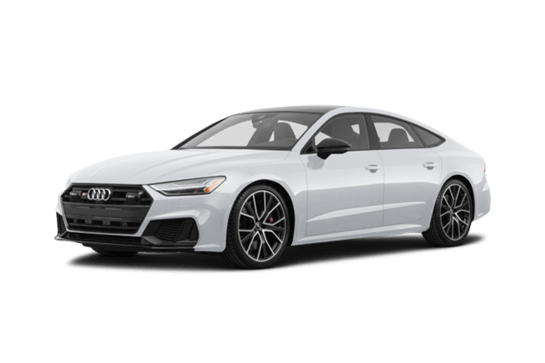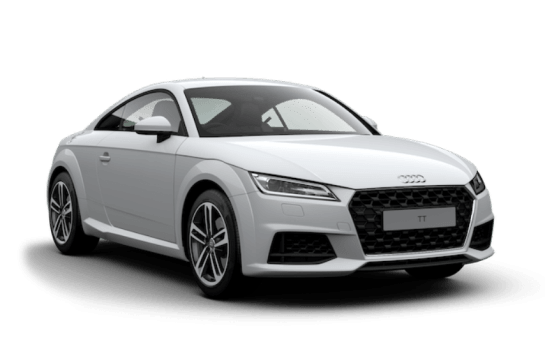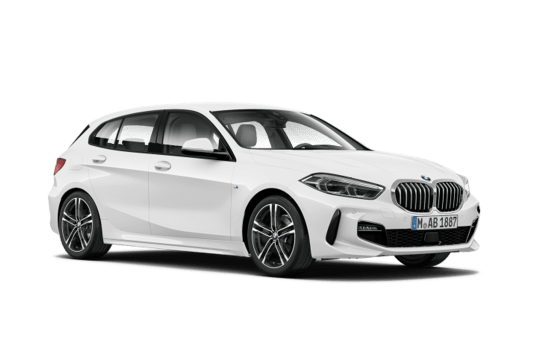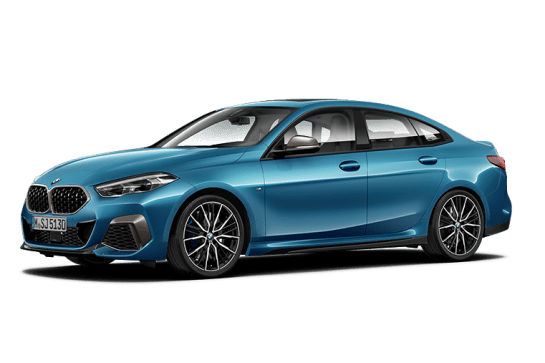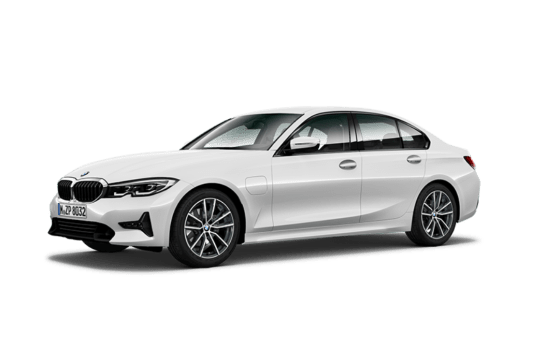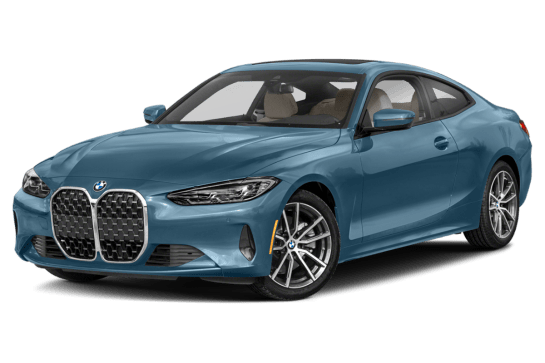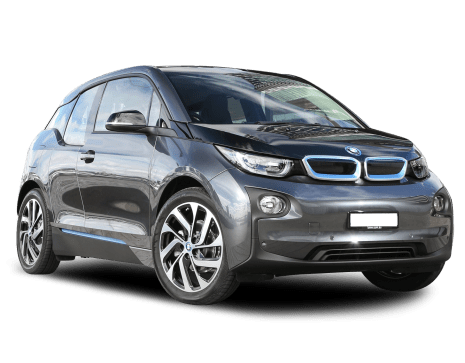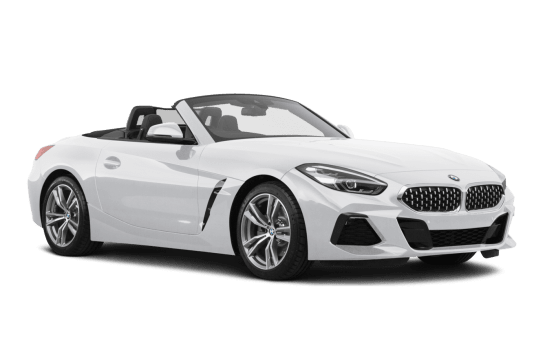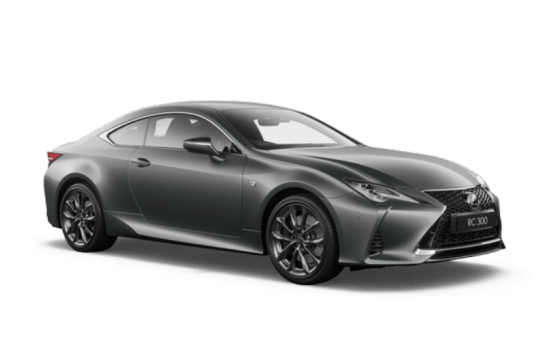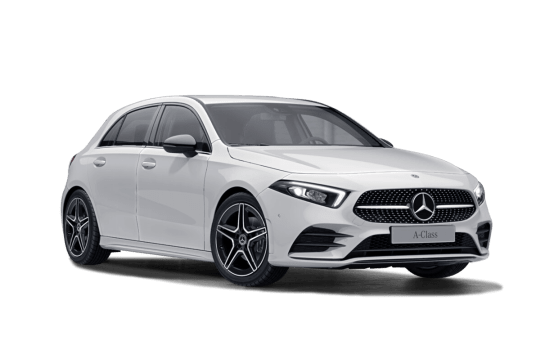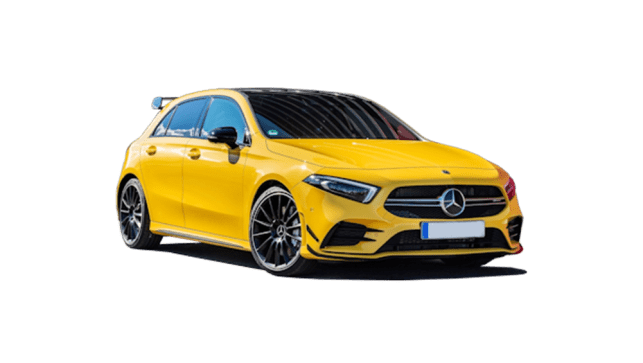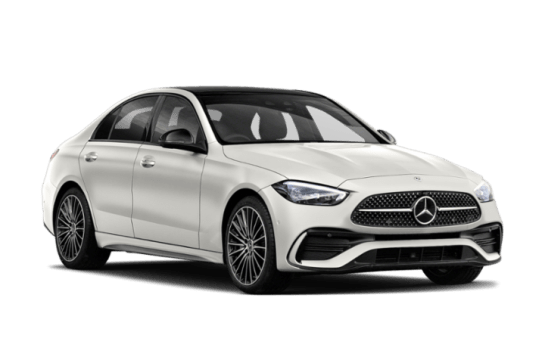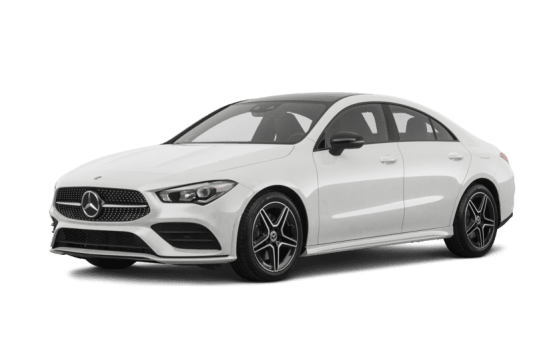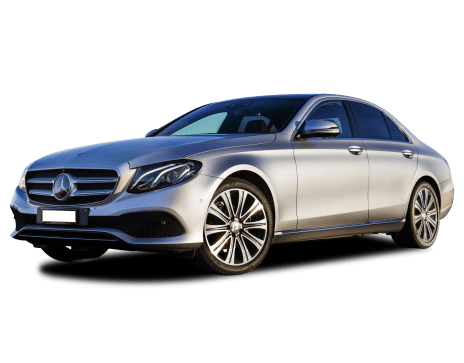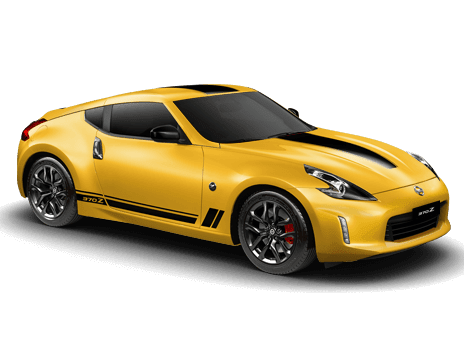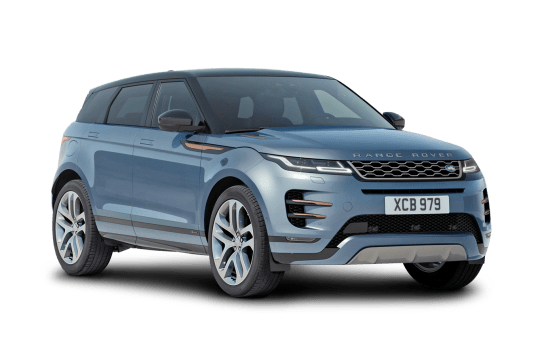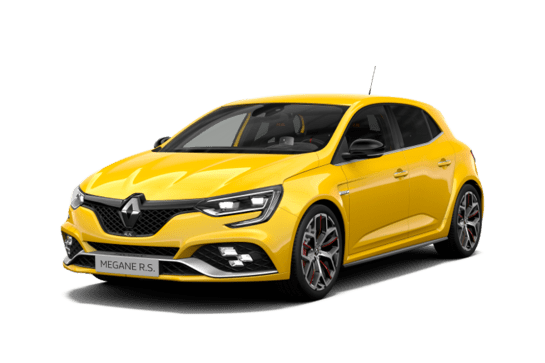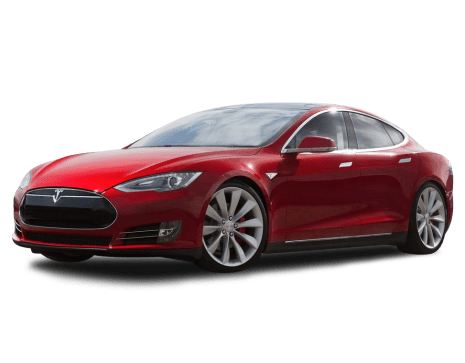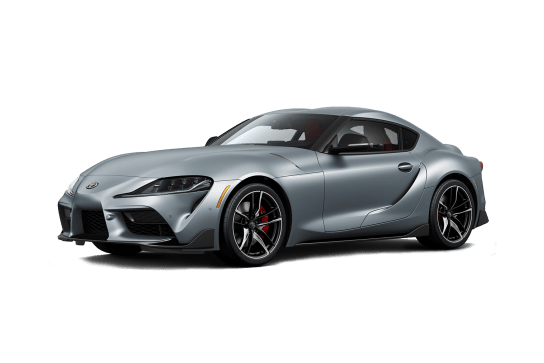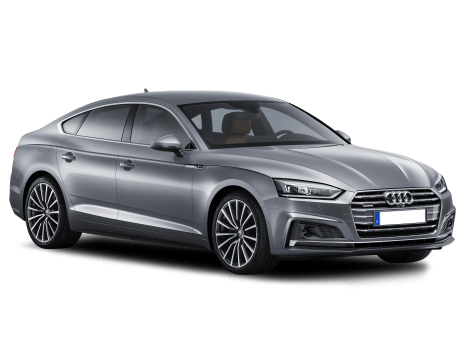
Audi A5 VS Tesla Model S
Audi A5
Likes
- Sharp looks
- Sophisticated cabin
- No shortage of equipment
Dislikes
- Drive experience can lack excitement
- Tight backseat in Coupe body style
- Three-year warranties are too short
Tesla Model S
Likes
- Rocketship speed
- Clean interior design
- Ever-improving proposition
Dislikes
- Sadly, it's not a sports car
- It's a lot of money
- Lack of convenient charging
Summary
Audi A5
Yes, yes, beauty is in the eye of beholder. But I challenge any eye to behold the refreshed Audi A5 and find it anything but beautiful.
In a world in which car design seems to be getting fussier and busier with every new model, the A5 remains a monument to simple lines and sophisticated shapes, both inside and out.
Looks are only part of the story, of course. So the big question is, does the rest of the package stand up? Or is the beauty only skin deep here?
Let's find out, shall we?
| Safety rating | |
|---|---|
| Engine Type | 2.0L turbo |
| Fuel Type | Hybrid with Premium Unleaded |
| Fuel Efficiency | 6.5L/100km |
| Seating | 5 seats |
Tesla Model S
If you have even a passing interest in the Tesla Model S, you'll have seen the endless internet videos where someone has lined up a Ferrari, Lamborghini, or another fast exotic car you could name, to race against it.
There's a long build-up, usually involving men who can't operate a baseball cap, a drag strip and idiotic words in the headline like "destroys" or "rips", or whatever. There's usually a bunch of honking bros with bad haircuts watching on, already planning their next viral video where they set a perfectly good mobile phone on fire.
It's facile and idiotic and doesn't give you any real clue as to the depth of whatever supercar it has "humiliated" or, just as importantly, the depth of the Model S and its spectacular engineering.
So, I won't be spending the next thousand words building up to the conclusion that the Model S P100D with Ludicrous Mode is up there with the world's fastest production cars from 0-100km/h, because I'll tell you now that it is, and it does it in a claimed 2.7 seconds.
Now that's out of the way, there's quite a bit more to the Model S than a "broken" Nissan GT-R owner weeping into their bento box.
| Safety rating | |
|---|---|
| Engine Type | — |
| Fuel Type | Electric |
| Fuel Efficiency | —L/100km |
| Seating | 5 seats |
Verdict
Audi A57.5/10
Predictably stylish, predictably competent, predictably comfortable. In fact, that predictability is among its only downsides. In short, the updated A5 might not move the needle all that much, but it didn't need much moving in the first place.
Tesla Model S8.3/10
I spoke to a friend who bought a Model S before one had even hit the ground here in Australia. He chuckled when I told him how much this car cost but then said something I'd already suspected. "My mates who own a P100D would never drop that kind of money on a normal car. Buying a Tesla is like buying shares in the company, you're buying into the future."
And that's kind of the point. A $300,000 Audi RS7 (fully-loaded, obviously) is a bit slower in a straight line, looks just as good, is extremely well-built and emits noises that make people like me go as weak at the knees (just as the Model S' acceleration does). And would probably win a 10 lap race with the Tesla around Mount Panorama.
The Tesla is the future of cars. It may still be decades before the internal combustion engine is gone, but Tesla buyers are getting the jump, and today the Model S is the best car in which to make that leap.
Does the Tesla have the spark you need or do old-fashioned hydrocarbons still light your fire?
Design
Audi A58/10
It's gorgeous, the A5. There's simply no disputing it. It's elegant, sophisticated, and above all, restrained. There's no look-at-me chintz here, just clean lines, sharp creases and a shapely figure.
Like its A4 sibling, the A5 has been tickled at the front, with a new-look grille, along with a new headlight cluster with redesigned DRLs, and Matrix LED headlights.
The four sharp bonnet creases that fan out from the grille lend the A5 a sense of speed, even when stationary, and we love the way the 19-inch alloys fill the wheel arches. It looks polished, premium and athletic.
Inside, Audi's interior treatment is on-point, from the figure-hugging leather seats to the material choices that span the dash. The big news in the cabin is the inclusion of Audi's new 10.1-inch touchscreen perched above the dash, which isn't just easier to use (in my opinion, at least), but also removes the traditional controls from the centre console.
It means Audi's already fuss-free cabin is even less cluttered, and it's definitely a change for the better.
Tesla Model S
The Model S is definitely the looker of the three Tesla models on sale (the Model 3 might be some way from release, but you can reserve one and it's... weird-looking). With a slinky, Jaguar XF/Audi A7 roofline and low-slung stance, it looks the business. Like the X, the detailing of the car's surfacing and panel gaps aren't where other $200,000+ cars are, but it has improved a lot over the last couple of years.
The styling is quite sparse, really. Teslas look like computer renders in real life, especially in white, with little in the way of jewellery or detailed design elements. And that's probably the idea. It's a cleaner design than when first launched, with a simpler, flatter snout that brings out the headlights better.
The cabin has improved even more than the exterior. It's still the same minimalist design, but it fits together much more tightly than it used to. The 17.0-inch portrait screen is still there in its central but skewed-to-the-driver position and is now up to version 8. It's an impressive interface, covering off the vast majority of functions in the car, and is mostly easy to use. The responsiveness is key to its usability. If it was underpowered, you'd quickly start demanding real buttons.
Practicality
Audi A57/10
It very much depends on the model you've opted for, with the Coupe compromising backseat space for exterior style.
The Sportback is easily the most practical of the trio, what with its four doors, comfortable backseat and dimensions that stretch 4757mm in length, 1843mm in width and 1386mm in height, and its 480 litres of boot space.
The Coupe, then, is a two-door design, stretching 4697mm x 1846mm x 1371mm, with 450 litres of luggage space at the rear. It's long, the Coupe, but most of that space is absorbed by the front half of the cabin, wth the backseat reserved for kids.
Finally, the Cabriolet (which we're yet to test) stretches 4697mm x 1846mm x 1384mm, and will deliver the lowest luggage capacity of the lot, at 375 litres.
Elsewhere, though, the A5 range delivers two cupholders up front, with another two in the centre armrest that can deploy to divide the rear seat. Rear-seat riders also get air vents with their own temp controls, USB charge points (joining the two up front) and bottle holders in the doors.
For parents, you'll find a pair of ISOFIX attachment points in the backseat, too.
Tesla Model S
The Model S is a rare car in this class in that it has an almost completely flat floor, meaning rear seat passengers don't have to negotiate a transmission tunnel. The two motors run physically independently of each other so there's no crankshaft to get in the way.
The floor is thicker than a normal car, it's like a big skateboard underneath. That means your knees are up higher, which might cause numb bum on a long trip. The rear seats are comfortable enough, but middle seat occupants might feel like the outboard passengers are falling into them.
The view out isn't too bad given the rising window line, and if you've got the big two piece sunroof (without cover, irritatingly... ), it's quite airy out back. And hot (with the sunroof), but you do get rear air-con vents.
The boot is an eminently sensible 744 litres with the seats up and 1795 with the seats down, although the floor doesn't fold flat. While it's a big boot, it's relatively shallow so your suitcases go in on their sides. Up in the front boot (or froot) there's another 150 litres, so you can pack a lot in to the Model S. And with all that torque, when you do load it up, the extra kilos barely make a dent on the performance.
Price and features
Audi A58/10
The cheapest way into an A5 remains the Sportback or Coupe body styles, which will set you back $71,900 with the 40 TFSI engine choice. You can upgrade to the 45 TFSI quattro engine, but doing so will also up the entry point to $79,900. The Audi A5 Cabriolet sits atop the pile, costing $85,400 for the 40 TFSI, and $93,400 for the 45 TFSI quattro.
Happily, all A5s get the S line style treatment, gifting each a sportier look, with a new-look grille and venting adding to the performance-spec style up front.
You also get 19-inch alloys, Audi drive select with five drive modes, three-zone climate (and neck-level heating in the Cabriolet), leather trim, matrix LED headlights, as well as tech-heavy interior highlighted by a new 10.1-inch touchscreen in the centre of the dash that controls the cars key audio, navigation and driving settings.
Speaking of the Cabriolet, the three-layer acoustic roof opens in just 15 seconds at speeds of up to 50km/h, with a wind deflector also deployed to help with cabin ambience.
Audi's very cool Virtual Cockpit (a 12.3-inch digital display that replaces the traditional driver's binnacle) is also standard, as is Apple CarPlay and Android Auto. Audi says the new model offers 10x the computing power of the outgoing model, owing mostly to connected car features including live traffic, weather reports and fuel pricing, as well as the ability to remote unlock or lock you car from your phone, or pre-plan destinations and send them to the vehicle's nav.
Tesla Model S
Tesla is basically a technology company - well, a battery company - that makes cars, so the features and options reflect that. It's a gadget-laden five-door hatch powered exclusively by electricity and seemingly full of things that will drain the batteries quickly.
If you view the car's price purely through its standard features list and the cost of options, you're missing the point. If it had a 3.0-litre turbo six, there's no way you'd pay this kind of money for the Model S. But it doesn't have that, it has a bleeding edge battery pack and propulsion system.
The Model S can be had for as little as $118,652 for the 60 offering 400km range, rear-wheel drive, and 5.8s 0-100km/h (but move quickly, Tesla has just axed this model), or as much as this P100D which starts at $250,582.
Standard are a seven-speaker stereo, leather-like trim, 19-inch alloys, reversing camera, 17.0-inch touchscreen, keyless entry and start, forward collision warning, digital dashboard, electric front seats, sat nav, auto LED headlights, auto wipers, internet connectivity via included SIM card, power mirrors and windows and air suspension.
Our P100D came with 21-inch grey 'Turbine' wheels ($6800), panoramic roof ($2300) multi-coat pearl paint (white, $2300) and carbon-fibre interior trim bits for $1500, as well as a carbon lip spoiler for another $1500.
We also had the 11-speaker audio upgrade (with neodymium magnets, don't you know) for $3800 and the 'Subzero Weather Package' (seat heaters, heated steering wheel, wiper blade defrosters and washer nozzle heaters) and on-board high-power charger (speeds up charging with the 'Tesla Wall Connector', $2300).
There was also 'Enhanced Autopilot' ($7600) and 'Full Self-Driving Capability' ($4600). The former is meant for highway running, and comes with four cameras (up from one) and 12 ultrasonic sensors around the car, as well as upgraded processing power to run it all.
The full self-driving is meant for around town. The idea is you punch in a destination, or speak to the computer or passive-aggressively stay silent, which triggers the car to check your calendar and take you to the address in the appointment. Part of the extra cost of that is yet more cameras (up to eight), more sensors, and more number-crunching power.
We would love to tell you how all that worked, but being Tesla 'Hardware 2', it's not ready yet. While these features are being fleet-tested by 1000 cars in the US, your car will run it all in "shadow mode" for data and behaviour validation. One day you'll go to your car and a software update will be ready to download and install the functionality.
Unusually, you can retrofit both of these features for about $1500 more (each) than if you order them up-front. That's very cool and Tesla is probably the only car company in the world that will let you do it.
The 17.0-inch screen's software is regularly updated, like a mobile phone's. Also like a mobile is the sometimes less successful update, in this case the slightly bewildering and difficult-to-use music interface that is very keen for you to make a selection with voice commands, but not ones that go through your phone.
A 'Premium Upgrades' package adds the overkill of a 'Bioweapon Defense (sic) Mode' that knocks out 99.97 per cent of exhaust particulates and other contaminants, using two activated carbon air filters for other nasties like NO2 and hydrocarbon exhaust fumes.
LED turning lights and fog lights, real leather on the armrests, steering wheel and lower dashboard (if you also have leather seating), nappa leather and Alcantara on the dashboard, soft LED interior lighting, power tailgate and backlit door handles for $5300. Thankfully, the silly self-opening front doors in the Model X's pack aren't in this little lot.
Grand total? $297,792. On the road in, say, NSW... $313,013. Youch.
Under the bonnet
Audi A58/10
Two choices here, the slightly tongue-twisting 40 TFSI and and 45 TFSI quattro, both of which make use of a 2.0-litre turbo engine tuned for different outputs.
The 40 will serve up 140kW and 320Nm, and pairs with a seven-speed S tronic automatic that shuffles that power to the front wheels. Audi reckons you'll see 100km/h in as little as 7.3 seconds.
The 45, on the other hand, will give you 183kW and 370Nm, pairing with the same auto gearbox, but this time sending power to all four wheels thanks to the quattro system. The 100km/h sprint drops to 5.8 seconds at its fastest.
Tesla Model S
The P100D ships with two electric motors fed by a huge battery pack which triples as the bulk of the chassis and a super-strong crash structure. It's also shared with the Model X SUV.
Combined power output is 568kW with more of it out the back rather than up front. Torque is quoted at 1000Nm, but it's likely more than that. Claimed 0-100km/h time is a mildly unbelievable 2.7 seconds, with a further two-tenths to be shaved off when you press and hold Ludicrous Mode and accept a warning that you'll wear the car out faster if you use it.
With 'Ludicrous Mode' comes not just software but a higher capacity fuse that allows more power to be drawn from the batteries for longer to provide the searing acceleration.
Efficiency
Audi A57/10
Audi reckons the 40 TFSI engine will return 6.5L/100km on the combined cycle, and emit 148g/km of C02. The bigger engine increases fuel use to 7.1L/100km, but lowers the C02 output to 163g/km. Both those fuel numbers are taken from the Sportback.
Both engines also get a new 12V mild-hybrid system said to drop fuel use by up to 0.3L/100km.
Fun tank capacity is either 54 litres or 58 litres, depending on the model.
Tesla Model S
Zippo. Obviously with the new rules for Tesla Superchargers, it's not as cheap to own and run a Tesla as it was before (from January 2017, all new orders don't get free juice after the first 400kWh), but if you charge it at home (and can get away with it), it'll probably be cheaper than using Tesla's chargers. If you look, there's a company offering $1 per day charging for electric cars.
If I'd charged the car to 100 percent rather than the 80 percent recommended by Tesla for most charges (past that mark, the charge rate drops and the software has to slow to a trickle, doling out the electrons to the different cells), I would have managed just over 400km on the charge.
Driving
Audi A58/10
You'd describe the A5's drive experience as evolved, rather than revolutionary, but to be honest, in a vehicle this competent, that's no small thing.
The hybrid tech is unnoticeable, and so the A5 delivers an on-the-road feel that isn't far away at all from the car it replaces. None are truly fire-breathing, but it feels comfortable and sophisticated, the outside world largely banished from the interior (though the firm-ish ride can send road imperfections into the cabin).
Audi has done a stellar job of making the A5 feel connected to the road below it, and the world around it, without dialling down the comfort factor. The steering, light in its normal setting but firming up as you cycle through the drive modes, is direct, but not twitchy, the ride is firm, but not uncomfortable, the engine (at least, the 45 TFSI we drove on launch) is capable without being ridiculous.
The end result is a predictably competent drive experience, with the A5 delivering in the areas it should, largely before you even notice.
The only downside to all of that, though, is that the experience is so predictable, that there are few surprises, positive or negative, thrown in. It can leave you feeling slightly disconnected from the experience, rather than truly engaged.
Now, a disclaimer, we spent limited time in the A5 on launch, so we'll wait until we get it in the CarsGuide garage before making a final verdict. But I'd be surprised if we liked it any less over a longer period.
Tesla Model S
The first time I drove a Model S, I enjoyed the acceleration and the silence of the electric motor (this was back in the Dark Ages when even the P90 only had one motor). And that has remained, with the air suspension providing a firm but comfortable ride despite the P100D's 21-inch rims and very low profile tyres. Electric motoring in any electric car is addictive.
Much progress has been made (yes, I'm getting to the acceleration, stay with me) in the way it drives. The earlier cars felt too computer gamey, with little feel through the wheel or the seat of your pants. The steering is better, especially in Sport mode, but not a lot gets through the air suspension, so it takes a while to build confidence in the chassis.
On the freeway (look, you can read ahead if you must) it's amazingly quiet, with just a bit of a rustling around the mirrors. Well, of course it's quiet, it's electric. For chassis and NVH (noise, vibration and harshness) squashers, not having the marvellous engine noise means much harder work to dull the other noises you just don't hear when there's an internal combustion engine.
And there's the acceleration. As the driver, you obviously know it's quick. Mash the throttle and the response is instant, the horizon closing in on you like you're attached by a very stretched and immensely strong bungee strap that's just been released. The way cars disappear in your rear vision mirror is hilarious.
It's more fun as a passenger, though. The Model X elicited whooping and laughing, but the P100D's extra 0.6s-worth of acceleration over the P90D, delivered with a truckload more G-force, equals silence. One woman said she was glad I'd caught her before dinner rather than after, before bursting forth with a range of expletives. One passenger became quite emotional, almost crying. And not just because they were stuck in a car with me.
Safety
Audi A57/10
Standard safety kit includes eight airbags, parking sensors front and rear, a 360-degree parking camera, adaptive cruise control with stop-and-go, rear cross-traffic alert, exit warning, and lane keep assist and lane change assist, along with a bevy of airbags, with the A5 range still wearing a five-star ANCAP safety rating.
Tesla Model S
The Model S comes with six airbags, ABS, stability and traction controls, three ISOFIX points, rollover sensors, emergency power disconnect. Additionally, when the software arrives, you'll have full AEB (ours was limited), self-driving and an ultra-clever active cruise that'll change lanes and overtake if the car you're following falls below your set speed.
The Model S scored five ANCAP stars, the maximum available, in April 2015 via the sharing arrangement with EuroNCAP.
Ownership
Audi A57/10
All Audi's are covered by a three-year, unlimited-kilometre warranty, with servicing required every 12 months or 15,000km.
You can pre-pay your service costs for three or five years, which will set you back $1800 for three years or $2820 for five years.
Tesla Model S
Tesla offers a four-year/80,000km warranty with a parallel eight year/unlimited kilometre warranty for the battery and drive units. Roadside assist applies for the four year warranty period.
Tesla offers two maintenance plans, three and four years in length. The three year plan costs $2100 and the four year $3175. Paying for the services individually over the same period will cost $2300 and $3425 respectively. That includes a wheel alignment (if needed), but it isn't particularly cheap when compared with 'normal' luxury cars.
Your first 400kW/h of recharging is free using Tesla's supercharger network, so that would be four full charges from empty (which you wouldn't do, obviously), or about 1600km worth. After that, it's 35c per kWh or $35 for a full charge.


